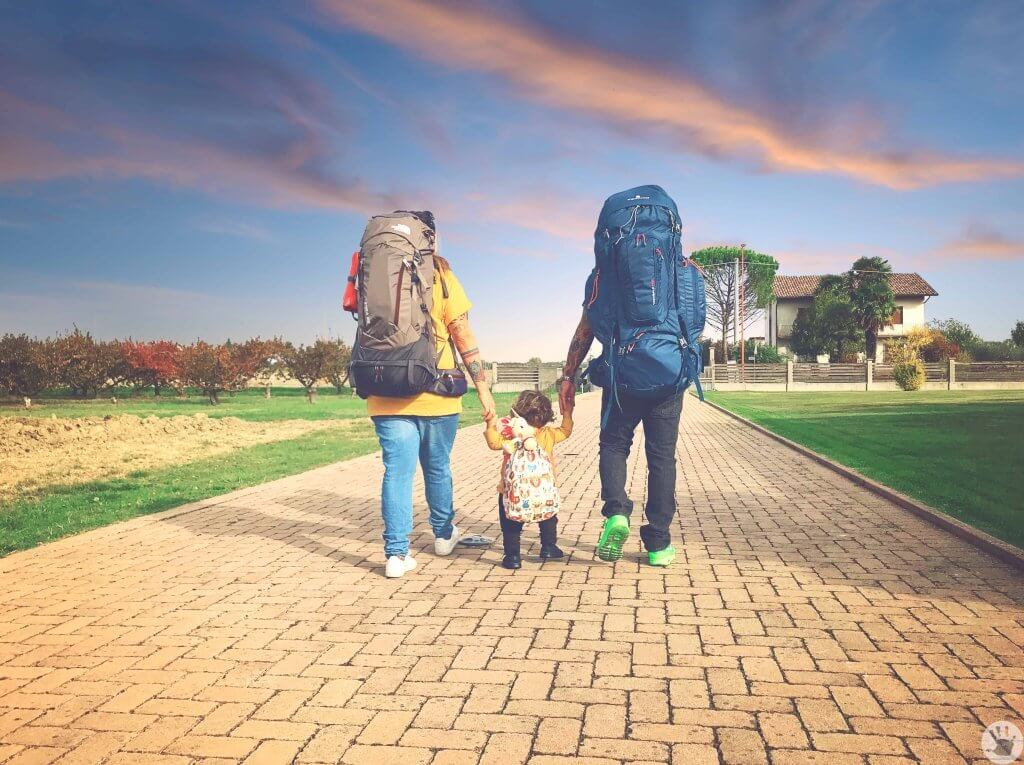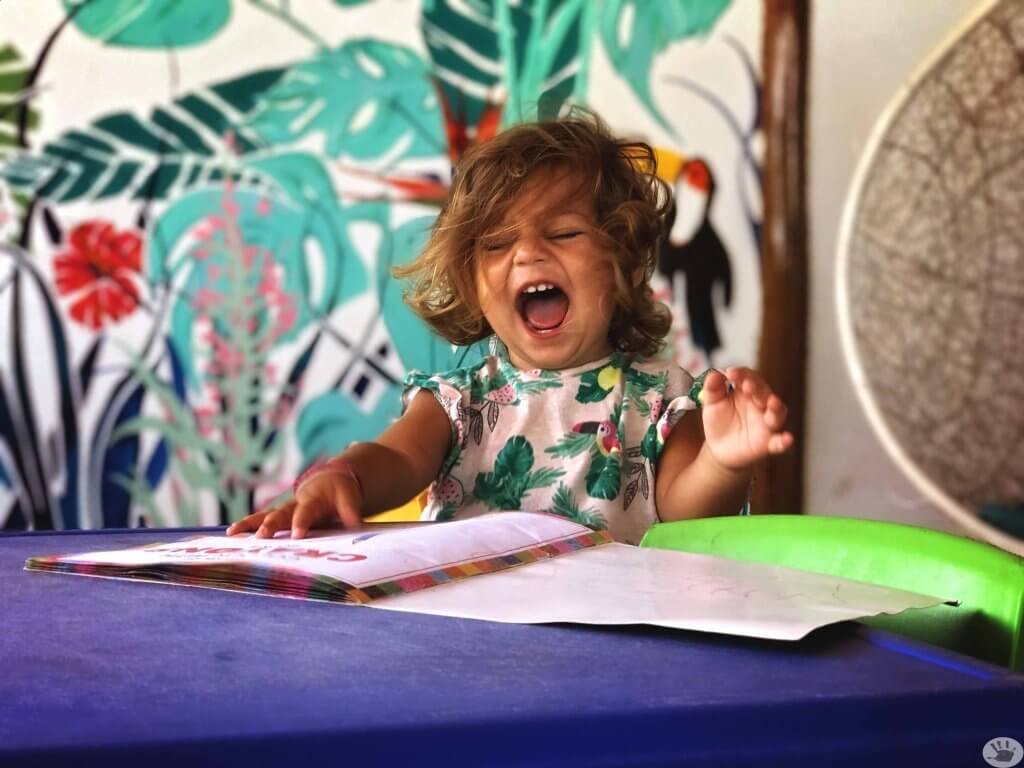Homeschooling vs Unschooling: Is There a Difference?

I can answer in capital letters: YES.
We tak about
ToggleThere is indeed a significant difference between Homeschooling vs Unschooling… let me show you the differences between these two learning paths.
I’m not discussing bureaucracy here, as it’s the same for both choices, but rather how education is approached with these two methodologies. If you’re interested in learning more about the laws and procedures to become a full-fledged homeschooler, here’s the link to my article “Homeschooling and Traveling with Children: Navigating Bureaucracy“.
Homeschooling vs Unschooling: What is Homeschooling?
Choosing to homeschool your children means opting for an alternative type of education while retaining many characteristics of traditional schooling. Even though homeschooling children don’t attend the conventional school system, they follow a path that is quite similar.
Today, there are many parent-led schools that adhere to homeschooling principles: they function practically as schools with rules, classes, and teachers, but they aren’t legally called schools. They likely don’t meet the necessary requirements under Italian law to be labeled as “schools”, or perhaps they choose not to (considering the business that can surround a successful parental school).
These schools can be forest schools, backpack-free schools, or even more traditional schools, but they are free from the national curriculum and the obligations of the Italian school system.
A homeschooling parent can choose to have their children attend this type of school or take on the task of educating their children themselves, or they can opt for private tutors or parent groups.
In any case, homeschoolers follow a structured program that closely resembles the national curriculum.
The World of Unschooling: Why It Differs from Homeschooling
The difference between Homeschooling vs Unschooling lies here: Unschooling, a branch of Homeschooling, presents numerous differences.
Firstly, children who follow this educational method have even fewer constraints compared to their “homeschooling” counterparts.
Unschooling is based on the complete freedom of children and parents. It doesn’t establish the teacher/student-parent relationship; instead, it allows children to learn at their own pace.
Unschoolers don’t necessarily fall behind, as I’m often asked when discussing our choice because, given the freedom to choose, children have an incredible learning speed.
We transitioned to this methodology after a year of parental education, during which I realized all the limitations imposed by homeschooling. If I chose an education for my children that was free from the rules of the school system, it didn’t make sense to sit down every day and study as if we were in a school (at that point, I would have enrolled them in public school).
I understood that, driven by performance anxiety from watching other families, I was losing sight of what my daughters and the family needed: freedom.
Since April of this year, we’ve started shedding all preconceptions and even all online ministerial programs, confident that our kids would ask, in due time, to learn what they need based on their growth.
How Does a Child Learn on Their Own?
I get asked this question almost every day, or whenever I talk about the topic. I don’t have an effective answer; I can only say that a parent who chooses this path must have maximum trust in their child and their requests.
It’s pointless to organize a math lesson if the child isn’t ready at that particular moment.
This is what I’ve learned over the years: I observe my children and wait for them to ask.
The role of an unschooling parent is that of a supervisor, not a teacher. I don’t teach my children anything; I simply provide them with information and materials from which they can learn.
How to Balance Homeschooling with Work?
There’s no one-size-fits-all answer; all I can say is that there’s no magic wand, and every family must find their own balance… Personally, we’ve homeschooled with full-time jobs, unemployment, and as entrepreneurs.
It can be done.
We’re not superheroes.
You simply need to find what works best in your individual case.
If you want to know how I organize myself, it’s quite simple: I don’t.
We wake up in the morning, get dressed, and have a leisurely breakfast.
If Matteo and I don’t have meetings or appointments, we usually sit at our desks working while the children color, write, read, or build.
We have lunch, and after lunch, it’s strictly nap time.
During those two hours, Matteo and I work hard, Aldo always sleeps, while Giulia sometimes stays in her room reading a book she chose.
When they wake up, they have a snack, and then I prepare something for them to do while I continue to work. Aldo is currently 4 years old and often colors or plays (sometimes he asks me to write a letter). Giulia, on the other hand, does more specific things: I usually offer her an educational book, she reads a few pages, then writes or draws something related to what she read, and we might discuss it together.
Not every day is the same; they often seem to do nothing, although we always try to include some educational moments.
We don’t have set rhythms; sometimes we get up at 10, other times at 8, and above all, we don’t follow any programs.
During busier work weeks, we might follow the children less, although they are very independent and don’t need constant supervision.
How do Unschooling Children Learn?
Everyone learns different things at different times. This is the basis of unschooling and also its winning strategy.
While in a classroom, many different children learn the same things at the same pace and in the same way, unschooling eliminates this approach.
You need to break away from all societal norms to benefit from this teaching method. This means that if you’re stopped at a traffic light and your child asks you to explain something about the solar system, you answer as best you can and perhaps later when you have time, provide them with reading or manipulative material on their own.
For example, when these questions arise (and I can assure you they arise very often), I answer immediately with what I know, then perhaps when I get home, I prepare some books from the library on the universe and print out some coloring sheets.
The rhythms are different, but it doesn’t mean they are slower; in fact, it’s obvious that a child following a tailored educational path learns faster than a child placed in a context with other children with different needs.
Unschooling still values the individual, without following a specific order, without adhering to the long-repeated school curriculum that has remained unchanged in Italian schools for over 100 years.
Personally, beyond the technical differences between Homeschooling and Unschooling, I believe that many homeschooling parents find themselves today replicating exactly what children would do in a school context, losing sight of the principle of freedom that should be at the core of this educational choice.
If you’re interested in this topic, here’s the link to another article on Homeschooling, our educational adventure.



